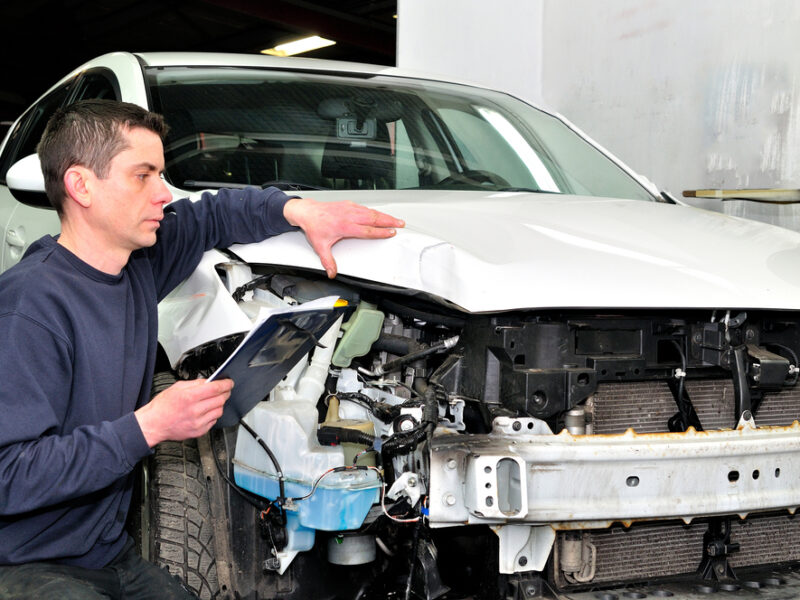Repairing or Replacing Your Damaged Vehicle
When your vehicle is damaged in a car accident in California, you have the right to seek compensation for repairs or replacement. Understanding the process of recovering property damage can help you navigate this challenging situation and ensure you receive fair compensation for your losses.
Understanding Your Rights in California
California law protects your right to recover compensation for property damage after a car accident. Whether the damage is minor or your vehicle is declared a total loss, you’re entitled to pursue compensation from the at-fault driver’s insurance company or through your own insurance policy, depending on your coverage.
Steps to Take After the Accident
Document Everything
Immediately after the accident, take detailed photographs of all vehicle damage from multiple angles. Document the accident scene, including skid marks, debris, and the final position of vehicles. This evidence can be crucial when dealing with insurance companies or if legal action becomes necessary.
File a Police Report
Even in accidents with only property damage, filing a police report creates an official record of the incident. This document can serve as valuable evidence when pursuing your claim. In California, you must report any accident resulting in property damage exceeding $1,000 to the DMV within 10 days.
Obtain Repair Estimates
Get estimates from multiple reputable repair shops. Insurance companies often have preferred shops, but you have the right to choose where your vehicle is repaired. Having multiple estimates can strengthen your position during settlement negotiations.
Understanding Your Compensation Options
Through the At-Fault Driver’s Insurance
If another driver is at fault, their property damage liability insurance should cover your losses. California requires drivers to carry minimum liability coverage of $15,000 for property damage. However, you may encounter challenges if:
- The at-fault driver is uninsured or underinsured
- The insurance company disputes liability
- The damage exceeds policy limits
Through Your Own Insurance
If you have collision coverage, you can file a claim with your own insurance company regardless of fault. While this option may require paying a deductible, it often provides a smoother and faster resolution. Your insurance company will then pursue reimbursement from the at-fault driver’s insurer through a process called subrogation.
What You Can Recover
Vehicle Repairs
You’re entitled to have your vehicle restored to its pre-accident condition. This includes:
- Parts replacement
- Labor costs
- Paint matching
- Rental car expenses during repairs
Total Loss Situations
If repair costs exceed your vehicle’s actual cash value (ACV), the insurance company may declare it a total loss. You’re entitled to receive the ACV of your vehicle immediately before the accident, considering factors like:
- Market value of similar vehicles in your area
- Vehicle age and condition
- Modifications or upgrades
- Mileage
Diminished Value
California law recognizes diminished value claims, which compensate you for the reduction in your vehicle’s market value after repairs. Even properly repaired vehicles often have lower resale values due to accident history.
Timeline and Statute of Limitations
In California, you have a three-year statute of limitations from the accident date to file a lawsuit for property damage. However, it’s advisable to begin the claims process immediately to:
- Preserve evidence
- Avoid delays in repairs
- Prevent potential issues with insurance coverage
- Maintain strong documentation of damages
When to Consider Legal Representation
While many property damage claims can be resolved without an attorney, legal representation may be beneficial if:
- The insurance company denies your claim
- The settlement offer is insufficient
- There are disputes about liability
- Your case involves complex issues like diminished value
- The at-fault driver is uninsured or underinsured
Protecting Your Rights During the Claims Process
Keep Detailed Records
Maintain a file containing:
- Accident reports and photographs
- Repair estimates and invoices
- All correspondence with insurance companies
- Rental car receipts
- Records of time spent dealing with your claim
Be Cautious in Communications
When dealing with insurance adjusters:
- Stick to facts about vehicle damage
- Avoid discussing fault or making recorded statements
- Get settlement offers in writing
- Don’t accept the first offer without careful consideration
Conclusion
Recovering property damage after a California car accident requires attention to detail and understanding of your rights. While the process can be challenging, knowing the proper steps to take and maintaining thorough documentation can help ensure you receive fair compensation for your losses. If you encounter significant challenges during the claims process, consulting with an experienced attorney here at Woolf Legal can help protect your rights and maximize your recovery.
